
The Federalist Party was a conservative and nationalist American political party and the first political party in the United States. It dominated the national government under Alexander Hamilton from 1789 to 1801. The party was defeated by the Democratic-Republican Party in 1800, and it became a minority party while keeping its stronghold in New England. It made a brief resurgence by opposing the War of 1812, then collapsed with its last presidential candidate in 1816. Remnants lasted for a few years afterwards.
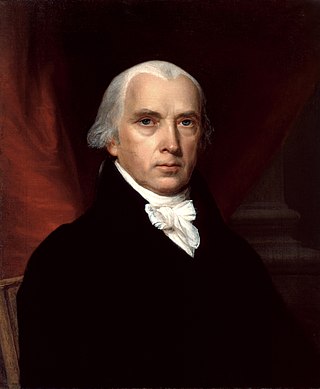
Presidential elections were held in the United States from October 30 to December 2, 1812. In the shadow of the War of 1812, incumbent Democratic-Republican President James Madison defeated DeWitt Clinton, the lieutenant governor of New York and mayor of New York City, who drew support from dissident Democratic-Republicans in the North as well as Federalists. It was the first presidential election to be held during a major war involving the United States.

Presidential elections were held in the United States from November 1 to December 4, 1816. In the first election following the end of the War of 1812, Democratic-Republican candidate James Monroe defeated Federalist Rufus King. The election was the last in which the Federalist Party fielded a presidential candidate.
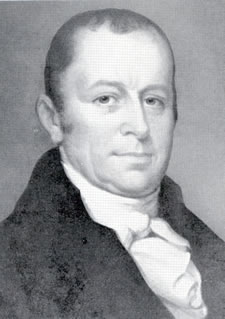
Simon Snyder was the third governor of Pennsylvania, serving three terms from 1808 to 1817. He led the state through the War of 1812.
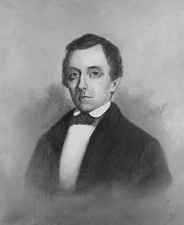
Daniel Rodney was an American merchant and politician from Lewes in Sussex County, Delaware. He was a member of the Federalist Party, and later the National Republican Party, who served as Governor of Delaware, U. S. Representative from Delaware and U.S. Senator from Delaware.

Charles Polk Jr. was an American farmer and politician from Big Stone Beach, in Milford Hundred, Kent County, Delaware. He was a member of the Federalist Party, and later the Whig Party, who served in the Delaware General Assembly and twice as governor of Delaware.

The 1812–13 United States House of Representatives elections were held on various dates in various states between August 3, 1812, and April 30, 1813. Each state set its own date for its elections to the House of Representatives before the first session of the 13th United States Congress convened on May 24, 1813. They coincided with James Madison being re-elected president.
Isaac Wayne was an American politician from Pennsylvania who served as a Federalist Party member of the U.S. House of Representatives for Pennsylvania's 4th congressional district from 1823 to 1825. He previously served as a member of the Pennsylvania House of Representatives from 1799 to 1801 and in 1806, and served as a member of the Pennsylvania State Senate from 1807 to 1810.

Elections to the United States House of Representatives were held in Pennsylvania on October 13, 1812, for the 13th Congress.

The 1800 United States presidential election in Pennsylvania took place on December 1, 1800, during a special session of the Pennsylvania General Assembly. Members of the bicameral state legislature chose 15 electors to represent Pennsylvania in the Electoral College as part of the 1800 United States presidential election. Eight Democratic-Republican electors and seven Federalist electors were selected. Unlike in the previous election, when one elector split his ballot between Republican Thomas Jefferson and Federalist Thomas Pinckney, all 15 electors followed the party line, with the Republicans voting for Jefferson and his running mate Aaron Burr and the Federalists for incumbent President John Adams and his running, mate Charles Cotesworth Pinckney. This was the first and only U.S. presidential election in which Pennsylvania's electors were not chosen by popular vote.

The 1812 United States presidential election in New York took place between October 30 and December 2, 1812, as part of the 1812 United States presidential election. The state legislature chose 29 representatives, or electors to the Electoral College, who voted for President and Vice President. During this election, New York cast its 29 electoral votes to Independent Democratic Republican and Federalist supported candidate DeWitt Clinton, who was then currently serving as the Mayor of New York City and the Lieutenant Governor of New York.
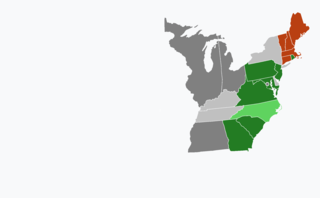
United States gubernatorial elections were held in 1802, in 12 states, concurrent with the House and Senate elections.

The 1812 Massachusetts gubernatorial election was held on April 6, 1812.

The 1811 Massachusetts gubernatorial election was held on April 1, 1811.

The 1810 Massachusetts gubernatorial election was held on April 2, 1810.

The 1809 Massachusetts gubernatorial election was held on April 3, 1809.

The 1808 Massachusetts gubernatorial election was held on April 4, 1808.

The 1807 Massachusetts gubernatorial election was held on April 6, 1807.

The 1814 New Hampshire gubernatorial election was held on March 8, 1814.
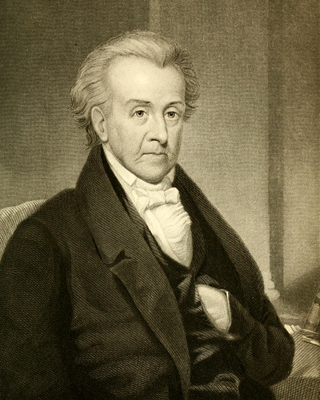
The 1814 Connecticut gubernatorial election took place on April 11, 1814.

















